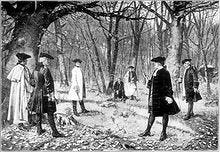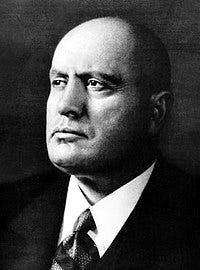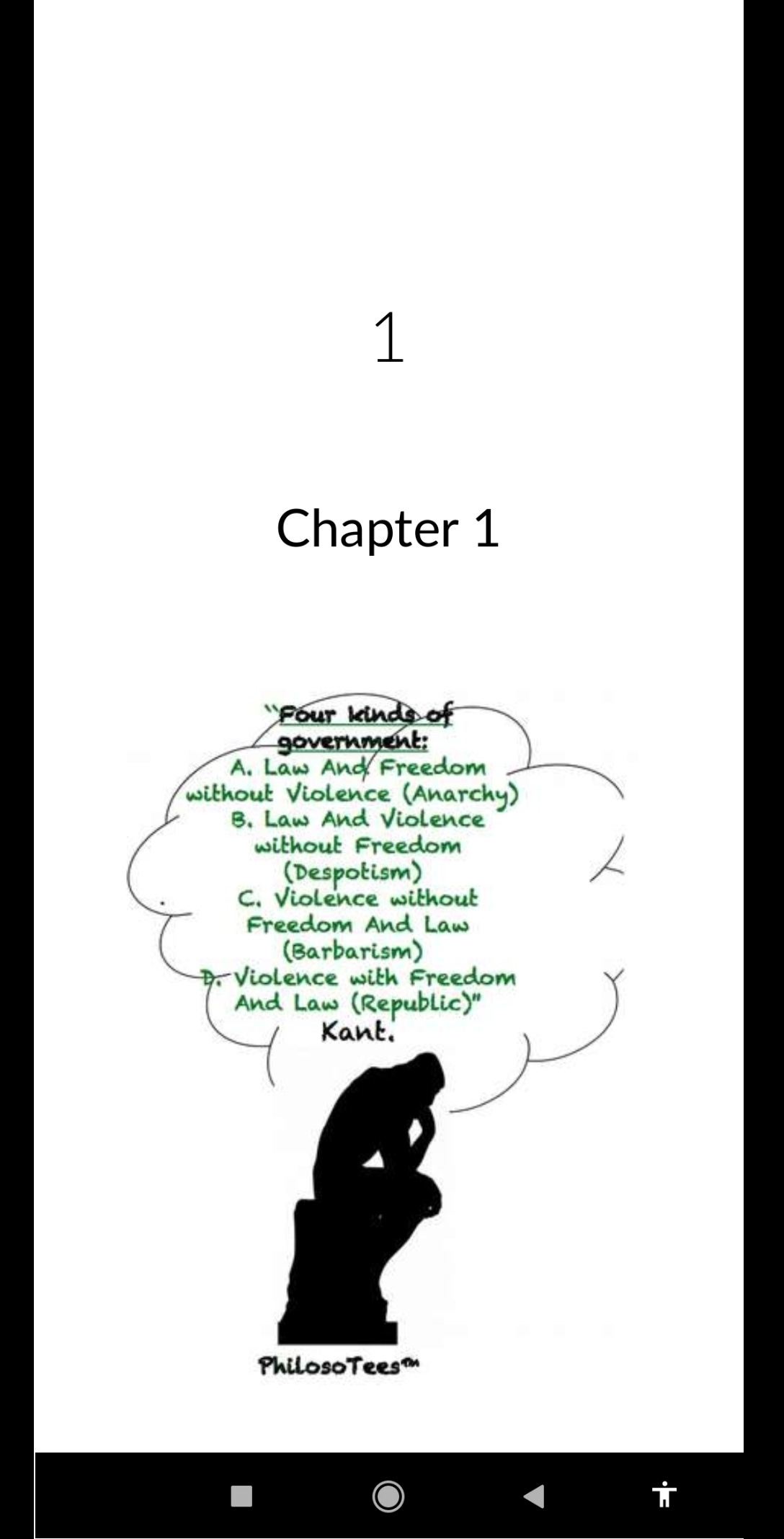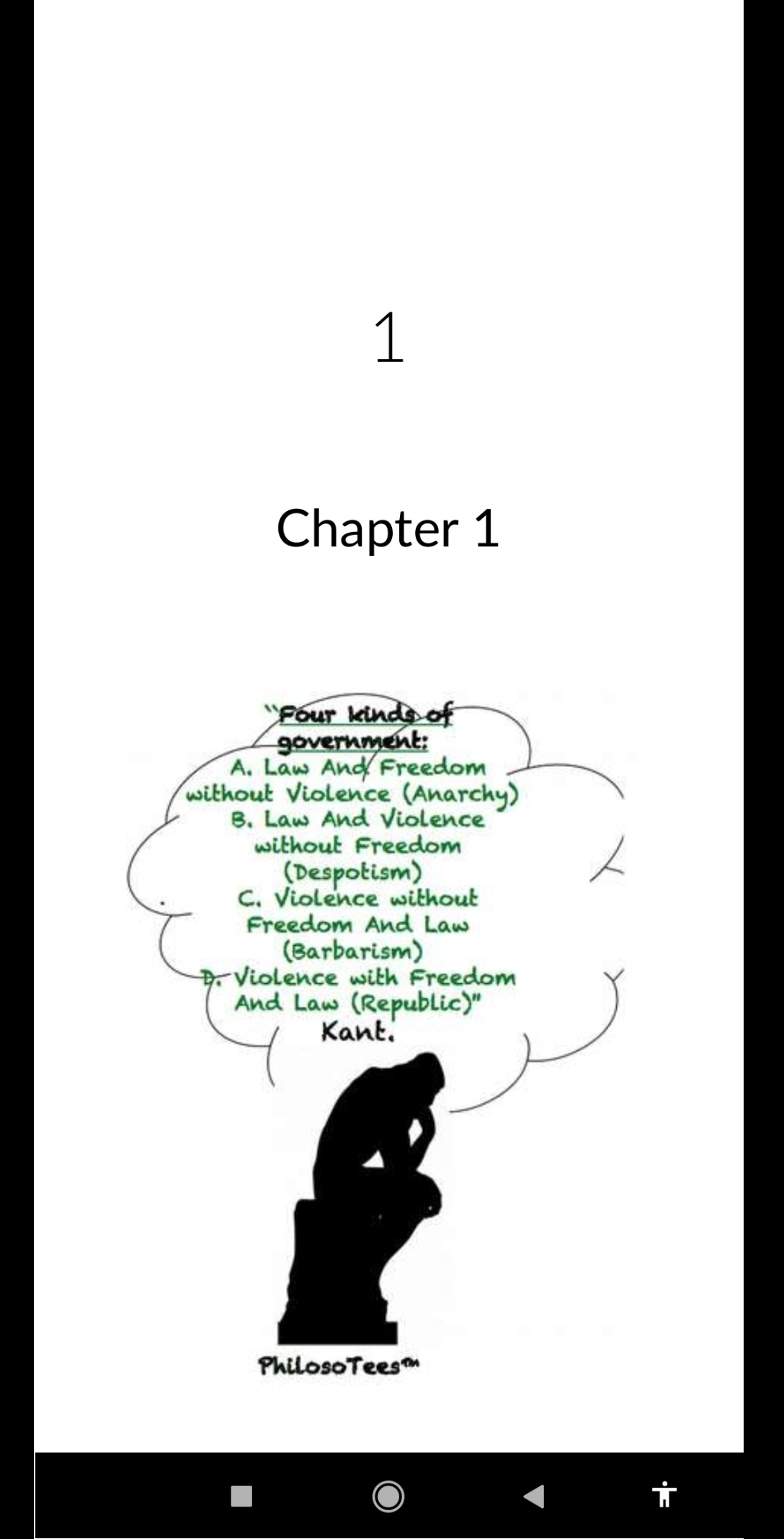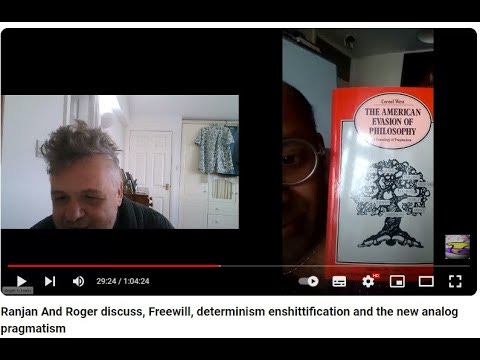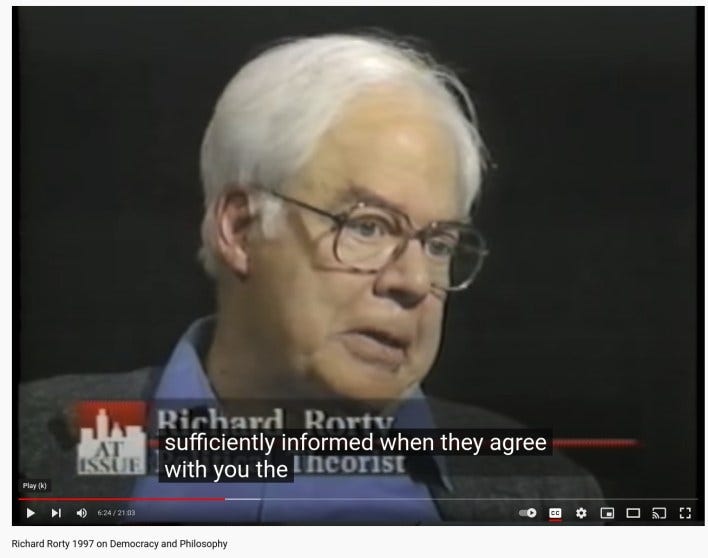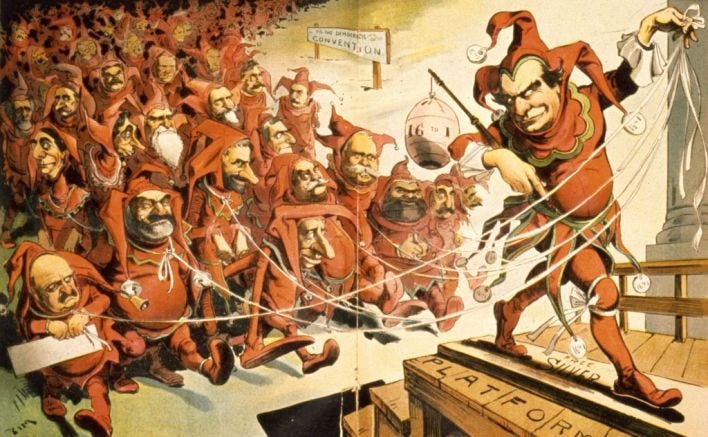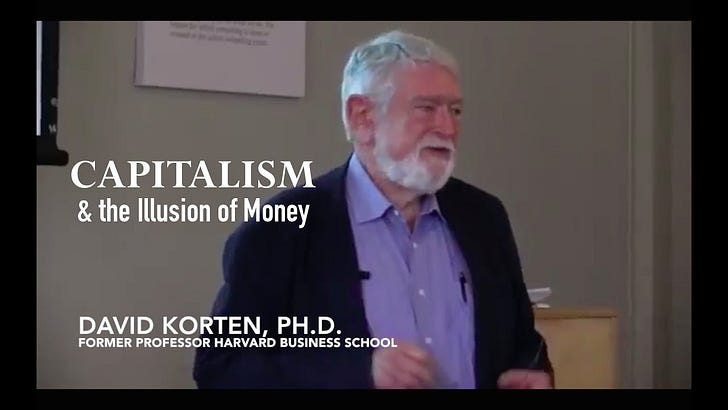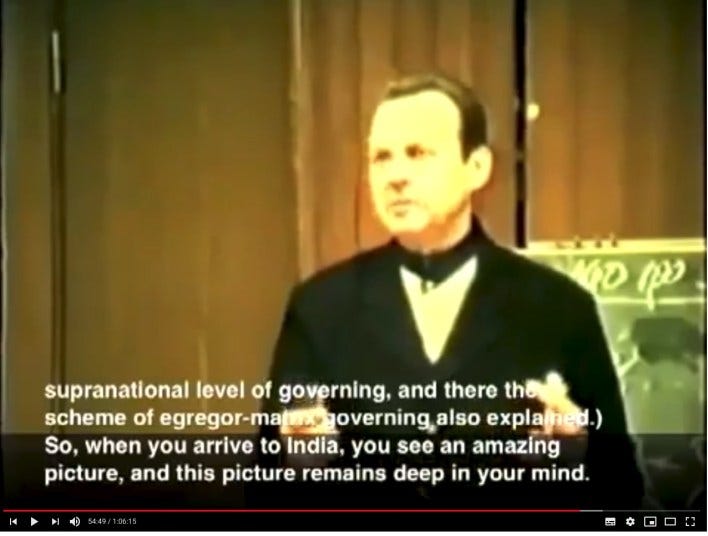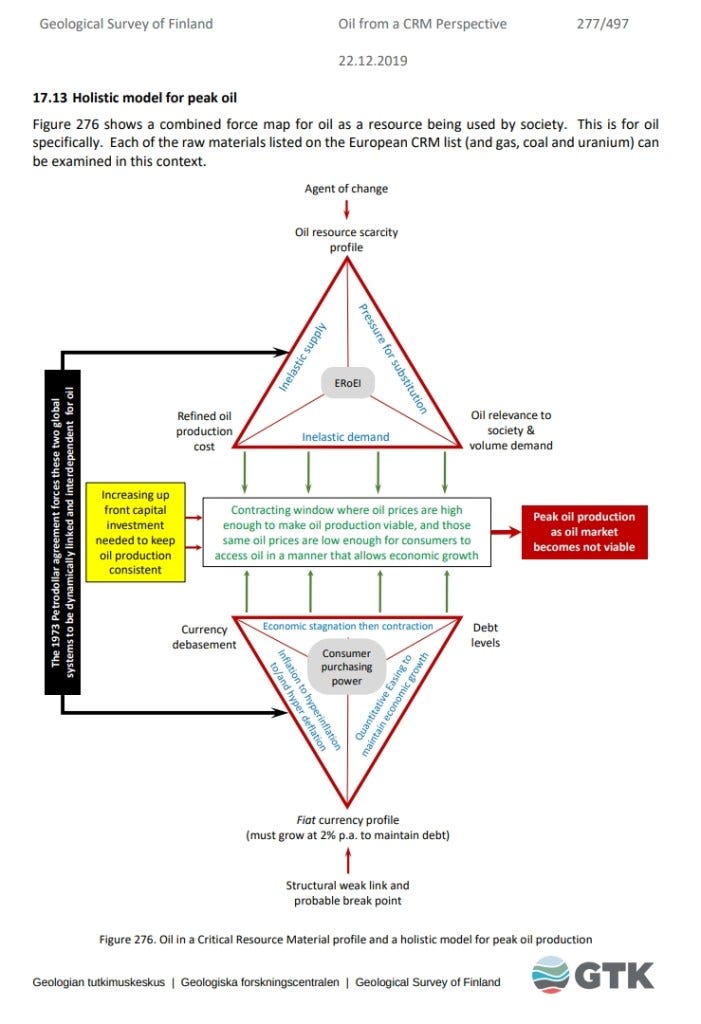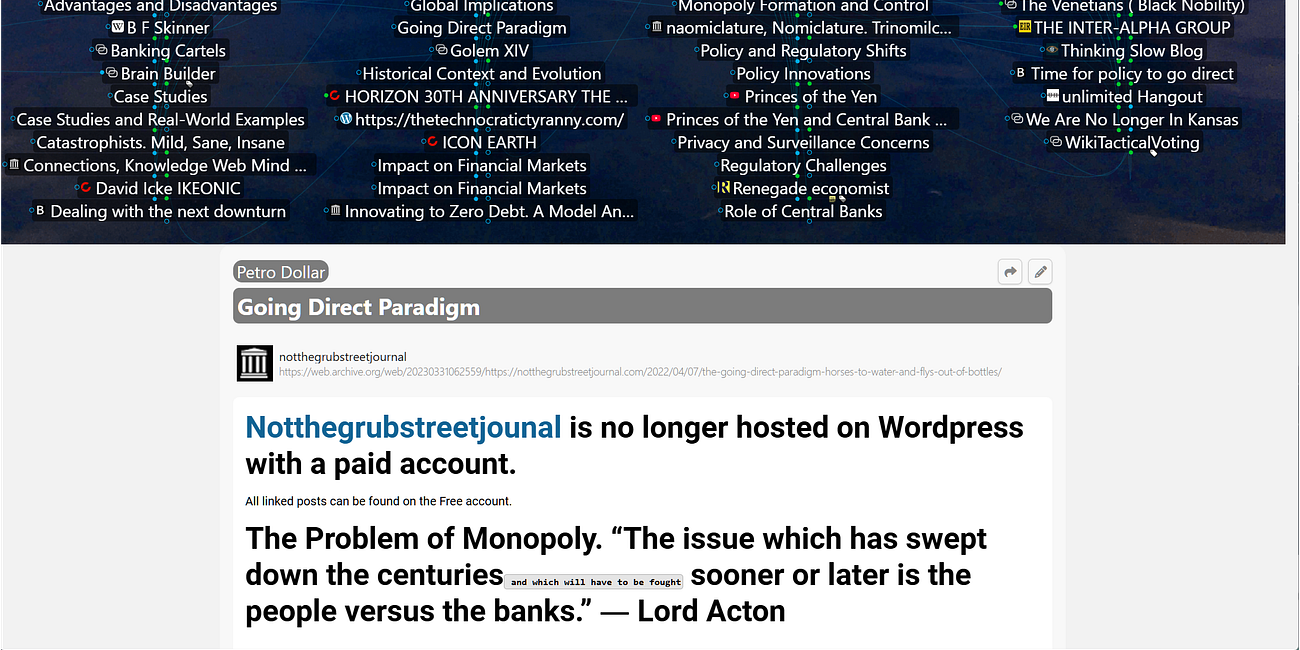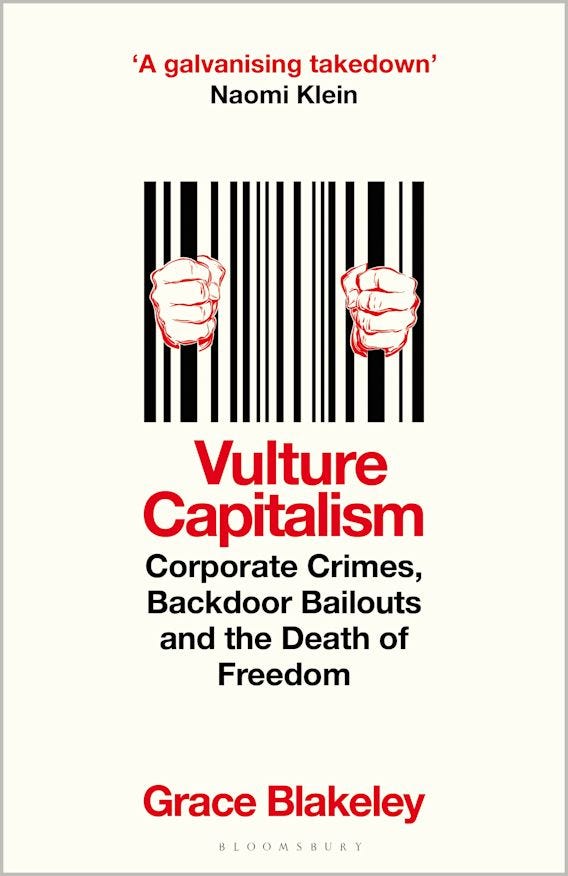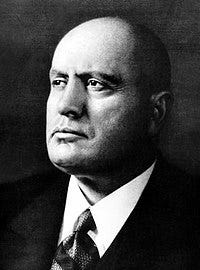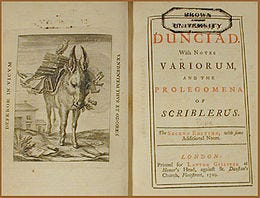The Kiss Precise
“For pairs of lips to kiss maybe
Involves no trigonometry.
‘Tis not so when four circles kiss
Each one the other three.
To bring this off the four must be
As three in one or one in three.
If one in three, beyond a doubt
Each gets three kisses from without.
If three in one, then is that one
Thrice kissed internally.
Four circles to the kissing come.
The smaller are the benter.
The bend is just the inverse of
The distance from the center.
Though their intrigue left Euclid dumb
There’s now no need for rule of thumb.
Since zero bend’s a dead straight line
And concave bends have minus sign,
The sum of the squares of all four bends
Is half the square of their sum.
To spy out spherical affairs
An oscular surveyor
Might find the task laborious,
The sphere is much the gayer,
And now besides the pair of pairs
A fifth sphere in the kissing shares.
Yet, signs and zero as before,
For each to kiss the other four
The square of the sum of all five bends
Is thrice the sum of their squares.”
The Kiss Precise – Frederick Soddy
https://archive.org/details/roleofmoney032861mbp
1:10:35 What’s the One Thing We’re Not Talking About? Join our exclusive TRIGGERnometry community on Substack!
You have to Subscribe to Comment, I really would not waste my money arguing with this Charlatan!
about when we talk about technology is uh you know Technology's What’s the One Thing We’re Not Talking About? Join our exclusive TRIGGERnometry community on Substack! 1:10:41 destruction of Labor demand and and the way it makes you know absolutely 1:10:47 ruthlessly acts to make human beings useless and I think one of the reasons 1:10:52 why the future needs a of state power I used to be a Libertarian I love being a Libertarian 1:10:59 uh I'm I describe myself as a recovering libertarian I'll always be a Libertarian in a way and and you know one of the 1:11:06 things that has happened to these societies is that you know you have a society go to the tower blocks you know 1:11:13 10 miles from here you have this these these buildings full of absolutely useless people and they're just decaying 1:11:19 in the most horrific way and you know this and this is a very long train of 1:11:24 history that starts with you know Goldsmith's deserted village you know like all the labor demand for like the 1:11:30 local blacksmith disappears and then you know his grandchildren have this horrific Den Kenzie in existence where 1:11:36 they're used as human robots and now we don't even need human robots anymore CU we have robots and then suddenly Along 1:11:43 come these large language models and they start working killing the demand for basically what um David Graber 1:11:49 called jobs suddenly like paper pushing is is under attack and you're like whoa I thought I could have a 1:11:55 career pushing papers and suddenly you can't and and so you know we have you know the system of technology is you 1:12:02 know economics refer economists refer to you know technology as basically productivity you and and you're just 1:12:08 like increasing productivity is good more productivity is better more stuff is better than less stuff and we come 1:12:14 into this economy where there's actually demand for like 10 guys who write you 1:12:20 know 10 you know men and women who write the large language models and then the 1:12:25 large language models start writing themselves and that's the real AI 1:12:31 disaster is that you don't need people anymore it's not that they'll like revolt against people in some sort of 1:12:36 golm myth it's that you don't need people anymore and so you know the way 1:12:41 the only way to prevent that is a sort of you know regime which says okay we 1:12:49 better R up cuz there's a protest against you um you know when you're basically 1:12:55 saying you know the purpose of government is the health of the people not the luxury of 1:13:02 the people not the wealth of the people but the health of the people you go back to thinkers like John Ruskin and and 1:13:07 carile who were like wait a second you know power needs to step in and power 1:13:13 needs to basically regulate the economy to make people need it and that's a very 1:13:19 hard and deep question and I'm sure people are protesting are they protesting me I hope I don't know we 1:13:24 we'll find out Curtis Yin thank you so much for coming on and we've got a great section for 1:13:29 locals with Curtis coming right up head on over there and we'll see you there What is Yarvins basic thesis here who is stiffling the debate?
Share
MonicaSonnet
Let me break down Curtis Yarvin's (also known as Mencius Moldbug) main thesis from this transcript:
Key Points:
Technology and Labor Displacement:
He argues that technology is systematically destroying labor demand
This makes human beings increasingly "useless" in economic terms
The process is "ruthless" and ongoing
Historical Perspective:
He references historical patterns, mentioning Goldsmith's "The Deserted Village"
Shows progression from traditional labor → industrial labor ("human robots") → actual robots → AI
Current AI Impact:
Large Language Models are now threatening white-collar "paper pushing" jobs
The economy may only need very few people (e.g., "10 guys who write the large language models")
Eventually, AI might even write itself, further reducing human necessity
Ideological Shift:
He describes himself as a "recovering libertarian"
Argues that state power/intervention is necessary to address these issues
Suggests government's role should focus on "health of the people" rather than wealth or luxury
References thinkers like John Ruskin and Carlyle who advocated for power to regulate the economy
As for who is stifling the debate, Yarvin doesn't explicitly state anyone is stifling it. Rather, he's suggesting that mainstream economic discourse tends to frame technological progress solely in terms of productivity gains ("more productivity is better"), without addressing the deeper social implications of human obsolescence.
The irony he's pointing out is that the very technological progress celebrated by free-market advocates (like his former libertarian self) might require strong state intervention to manage its social consequences.
This isn't a case of debate being stifled so much as it is Yarvin arguing that we're not having the right conversation about technology's impact on human worth and social stability.
Ann Pettifor - Show Me The Money Tree https://longhairedmusings.wordpress.com/2017/06/01/the-magic-money-tree-a-poem-by-roger-g-lewis-magicmoneytree/
Richard Murphy - Who Borrows More, Labour or Conservatives?
#8thwaytothink The sectoral Balances approach to aggregate demand is a tautological accounting identity Explication of the Magic Money tree is my simple aim. I have written Longer poems on political economy and about energy based calibrations of the unit of account and value Usury hells Fuel Mans oppressor, Tides of the Dollar Moon and Bourgoise resolution and Globalisation unentangled all explore these areas. I have also written a Novel #ConquestofDough https://theconquestofdough.weebly.com/ Different Video over the poem here
Magic Money Tree, Ents, Groots Marvel at the Simplicity of the Magic Money Tree a Tree Shepherd Oddysey https://longhairedmusings.wordpress.com/2017/06/01/the-magic-money-tree-a-poem-by-roger-g-lewis-magicmoneytree/ The Last March Of The (R)Ents
I am GROOT
Ann Pettifor - Show Me The Money Tree
Richard Murphy - Who Borrows More, Labour or Conservatives?
https://longhairedmusings.wordpress.com/?s=magic+money+tree
https://longhairedmusings.wordpress.com/2017/03/28/globalisation-un-entangled-a-found-poem-cipher-of-globalism/
June 01, 2017 THE MAGIC MONEY TREE. A POEM BY ROGER G LEWIS #MAGICMONEYTREE
https://longhairedmusings.wordpress.com/?s=Pluralism
A LOOPHOLE ALLOWS BANKS – BUT NOT OTHER COMPANIES – TO CREATE MONEY OUT OF THIN AIR
https://longhairedmusings.wordpress.com/2017/06/01/the-magic-money-tree-a-poem-by-roger-g-lewis-magicmoneytree/
https://longhairedmusings.wordpress.com/2017/06/03/magic-money-tree-ents-groots-marvel-at-the-simplicity-of-the-magic-money-tree-a-tree-shepherd-oddysey/
http://www.correntewire.com/money_spreadsheet ONE OF THE MAIN CAUSES OF OUR ECONOMIC PROBLEMS #8thwaytothink
November 5, 2016
The Giant Sucking Sound , A Sharp intake of Breath, A duel to the death The New United States Republic 1776-2016.
The Giant Sucking Sound , A Sharp intake of Breath, A duel to the death. The New United States Republic 1776-2016.
In 1729 Benjamin Franklin wrote a pamphlet ´´A modest Enquiry into the nature and the necessity of a paper Currency.”
a modest enquiry,
”There is no Science, the Study of which is more useful and commendable than the Knowledge of the true Interest of one’s Country; and perhaps there is no Kind of Learning more abstruse and intricate, more difficult to acquire in any Degree of Perfection than This, and therefore none more generally neglected. Hence it is, that we every Day find Men in Conversation contending warmly on some Point in Politicks, which, altho’ it may nearly concern them both, neither of them understand any more than they do each other.
Thus much by way of Apology for this present Enquiry into the Nature and Necessity of a Paper Currency. And if any Thing I shall say, may be a Means of fixing a Subject that is now the chief Concern of my Countrymen, in a clearer Light, I shall have the Satisfaction of thinking my Time and Pains well employed.
To proceed, then,
There is a certain proportionate Quantity of Money requisite to carry on the Trade of a Country freely and currently; More than which would be of no Advantage in Trade, and Less, if much less, exceedingly detrimental to it.
This leads us to the following general Considerations.”
http://founders.archives.gov/documents/Franklin/01-01-02-0041
This statement serves as my introduction, When the British Banned Colonial Scrip the first Giant Sucking Sound of the prosperity of the United States Colony being appropriated by the British Ruling Class and the Money Interests, amongst other complaints lead to the Formation of the first United States republic.
Set against the British the new Americans Found an Ally in King Louis XVI of France who Started sending Supplies in 1775, We find Benjamin Franklin in France December 1776 to rally support, the rest is history suffice to say The events of the formation of the First French republic are not un-connected to the large expense of funding foriegn wars.
The first French Republic was founded on 22 September 1792, the evolution of the factions into the Dissolution into the First Empire of 1804 under Napoleon is another story. An apocryphal parallel in the US to the factions vieing for representation and power in the french Republic
is perhaps seen in a Duel Fought between Alexander Hamilton and Aaron Van Buren . On July 11, 1804, the enemies met outside Weehawken, New Jersey, at the same spot where Hamilton’s son had died. Both men fired, and Hamilton was mortally wounded by a shot just above the hip.[50]https://en.wikipedia.org/wiki/Aaron_Burr
figAlexander Hamiltonhts his fatal duel with Vice President Aaron Burr.
Aaron Burr was Jeffersons Vice President and Hamilton a Federalist lets look at what they both stood for.
Major Outlines of the First Two American Parties
Federalists
(Democratic) Republicans
Adams/Hamilton/Marshall
Jefferson/Madison
Well-born leaders
Talented leaders; meritocracy
Conservative/monarchy
Liberal/democratic-republican
Pro-British
Pro-French
Strong federal government
States’ rights/limited federal power
Strong judiciary
Strong legislature; weak courts
Permanent debt financed by wealthy
Elimination of national debt
Support merchants/manufacturing
Support farmers, artisans
Property qualifications to vote
Open vote
Evolved into Whigs in the Jackson years, then Republicans in 1854.
Evolved into the Democratic Party under Jackson in 1828.
Important Early Political Figures
WASHINGTON: Tried to stay “above politics”; was generally sympathetic to Federalists—sided with Hamilton over Jefferson. Probably could be called a Federalist.
HAMILTON: Had a noted business-financial bias; believed in original sin—the natural depravity of human beings, therefore strong controls called for; he had authoritarian inclinations and an entrepreneurial spirit.
ADAMS: Adams had an agricultural bias but otherwise thought much like Hamilton. He was a true republican, though accused of monarchical sympathies. Deserved a second term as president.
JEFFERSON: He had an agricultural bias; he also believed in human perfectibility and was wedded to ideas of reason and science; he therefore mistrusted government because of his belief in human goodness.
MADISON: Began as Federalist but after the Constitution was adopted he turned more toward Jeffersonian ideals and became Jefferson’s disciple and successor as president. Many historians, myself included, believe that Madison was the most brilliant political thinker of the age.
John MARSHALL: He was a strong Federalist who carried out much of the Federalist agenda as chief justice—well into the Madison-Monroe-Jackson years, served as chief justice from 1801 to 1835.
http://sageamericanhistory.net/federalperiod/topics/1790spart1.html#HamiltonFin
Hamilton was also notable as the ”Father of American Capitalism.
”Hamilton can truly be called the father of American capitalism. Whether ones approves of the capitalist system or not, it was still a great achievement by that most controversial of the founding fathers. His achievement as first Secretary of the Treasury was to create a stable and sound federal financial system, without which the economic development of America would have been severaly hampered.”
The Developments in France over the next Half Century lead us to the momentousevents of European PoliticalEconomy in 1848, where there were many revolutions. The events in France are analysed by Karl Marx in this Essay. The Eighteenth Brumaire of Louis Bonaparte Written: December 1851-March 1852;
https://www.marxists.org/archive/marx/works/download/pdf/18th-Brumaire.pdf
The video critiques democracy as a system that structurally promotes bad ideas by separating authority from responsibility, explores historical and ideological shifts, and discusses how societal structures often suppress good ideas in favor of empowering harmful ones.
Detailed Summary for [The Case Against Democracy](
by [Monica](https://monica.im)
[00:00](
The discussion revolves around the challenges of democracy, particularly how bad ideas can gain traction and suppress good ideas, ultimately leading to a corrupted marketplace of ideas.
- Introduction to the concept of democracy and its flaws.}
- Exploration of how harmful ideas can empower themselves within society.}
- Discussion on the corruption of experts when given power and the negative impact on the marketplace of ideas.}
- Introduction of a guest speaker who shares their background and journey to becoming an influential figure.}
[09:09](
The discussion revolves around the evolution of ideas from the 1960s, their transformation into orthodoxy, and the subsequent pushback against these established beliefs, particularly in online spaces. It highlights the struggle of individuals grappling with conflicting ideologies and the emergence of nihilism as a response to perceived orthodoxy.
- The ideas from the 1960s have become rigid and orthodox over time, losing their original freshness.}
- There is a growing movement online, particularly in anonymous forums, where individuals express dissent against established norms.}
- Nihilism emerges as an attractive response to orthodoxy, but there is a call for more than just negative dissent.}
- Students are increasingly questioning the content taught in schools, particularly around sensitive topics like race, leading to confusion about their beliefs.}
- The conversation highlights the dangers of equating dissent with extreme ideologies, as seen in a student's reaction to being labeled a Nazi for questioning mainstream beliefs.}
[18:22](
The discussion explores controversial beliefs and conspiracy theories surrounding historical events, particularly focusing on the Holocaust and World War II, while emphasizing the importance of critical examination of these narratives.
- The video addresses the prevalence of anti-Semitism and Holocaust denial as significant false beliefs in modern history.}
- It highlights the Holocaust as one of the most well-documented events, contrasting it with other conspiracy theories related to World War II.}
- The speaker mentions the belief that President Roosevelt had prior knowledge of the Pearl Harbor attack, illustrating how certain historical interpretations can be controversial.}
- The discussion includes references to historical figures like Hitler and Stalin, and how their actions and motivations are analyzed in various historical narratives.}
- The speaker expresses skepticism about conspiracy theories while acknowledging that some historical perspectives warrant further exploration, particularly regarding the relationships between key leaders during the war.}
[27:33](
The discussion revolves around the nature of political change, referencing historical revolutions and the possibility of peaceful transitions.
- Introduction to Joseph Demra, an Enlightenment thinker who critiques the French Revolution.}
- The speaker reflects on the bloodthirstiness of the 20th century and the potential for peaceful political change.}
- Contrary to common belief, the speaker posits that significant political change does not necessarily require violence.}
- A historical perspective on the fall of the Soviet Union, highlighting the unexpected nature of its peaceful transition.}
[36:46](
The discussion contrasts historical and contemporary forms of censorship and political repression, drawing parallels between different regimes and their approaches to dissent and violence.
- The video begins by referencing England's historical context of censorship and its relation to modern dictatorships.}
- It highlights the differences between Elizabethan England and more oppressive regimes like Stalin's Russia, emphasizing the selective nature of political repression.}
- The speaker discusses the relative safety of the current era compared to historical periods, noting the impact of insecurity on governance.}
- The narrative shifts to the Wagers, a Central Asian group, exploring how external influences and violence have shaped their current situation.}
- Finally, it compares the experiences of the Wagers in China with those of Afghans under prolonged conflict, questioning which circumstance is preferable.}
October 17, 2019
EU/UN Feudalism, what feudalism under the new EUssrRegime Looks Like. Evolution of the Swedish Constitution, Brino , Brexit. Sweden the 4th Reich and The EUsssr and the 5th Reich.
Benito Mussolini claimed that the modern phase of capitalism is state socialism “turned on its head”
https://en.wikipedia.org/wiki/State_capitalism
The Swedish Theory of Love, an everyday story from #Cuckland. #SwedishHypocrisy #SwedishStateMonopolyCronyCapitalism #SwedishEUMilitaryUnification #EUArmyNatoByBackDoor
The Peculiar history of the Swedish State constitutionally and the arrangements made in the Social Contract when the US New Deal and British versions of the same were cast. The Swedes created a form of State monopoly Capitalism somewhat analogous to the Junkers and Prussian arrangements explained by John Catto.
This evolution lead with a flirtation described as Socialism or Democratic Socialism. It was in fact a FLirtation with National Socialism/StateMonopoly Capitalism a Flirtation which endures and is also the driving force behind the Eu.
Holy Roman Emperor
From Wikipedia, the free encyclopedia
Jump to navigationJump to search
Not to be confused with Roman emperor.
For the racehorse, see Holy Roman Emperor (horse).
Emperor of the
Holy Roman Empire
[45:59](
The video discusses the historical context of censorship and parallels between past regimes and contemporary issues, emphasizing the importance of understanding censorship beyond overt actions.
- The speaker reflects on the historical implications of job loss and societal changes, drawing a connection to the experiences of earlier generations.}
- A narrative is introduced regarding a secret speech from the mid-30s, highlighting the influence of political ideologies on cultural production in America.}
- The discussion shifts to literary censorship, using 'Animal Farm' as an example to illustrate how censorship operates subtly through publication restrictions rather than outright bans.}
- The speaker compares the nuances of censorship in different historical contexts, suggesting that even influential works like Orwell's can be subject to complex forms of suppression.}
[55:11](
This section discusses the various forms of government as described by Aristotle, emphasizing the implications of democracy and the failures of political systems, particularly in relation to historical events such as the rise of Hitler.
- Introduction to Aristotle's classification of government forms: monarchy, oligarchy, and democracy.}
https://www.everand.com/series/712247491/The-Going-Direct-Paradigm-Spring-2024
- Discussion on the failures of politics in the 20th century and the dangers of allowing elected politicians to govern.}
- Exploration of the connotations of the terms 'democracy' and 'politics', suggesting a preference for governance by intellectuals over politicians.}
[01:04:22](
The discussion highlights how bad ideas can proliferate in a system that lacks accountability, particularly in the context of authority and responsibility. It emphasizes that rather than a deliberate plan by a ruling body, a structural mechanism rewards these ideas, leading to their acceptance and promotion.
- The impact of bad monarchies on the marketplace of ideas is discussed, indicating a suppression of good ideas.}
- The absence of a centralized authority or dictatorship leads to a system that rewards bad ideas, as there is no accountability for those promoting them.}
- The division of authority from responsibility allows bad ideas to thrive, as they are not held accountable in the competition of ideas.}
- Bad ideas can seem attractive due to social pressures and the prevailing practices in certain fields, like gain of function research, which complicates dissenting opinions.}
Money?
37:50
they're a Central Asian people and um like many people around the turn of the
37:56
century kind of um a lot of Saudi money and sort of went in and they developed a
38:02
um a terrorist movement there which um I think what really kicked that off.
I think this man taught Elon Musk to Bull Shit!
Video et Taceo
October 18, 2019
“video et taceo” (“I see but say nothing”) #OnBrino #HMQE2 #EUMilitaryUnification#RumpParliament #EnglishCivilWar #GloriousRevolution #CondemnedtoRepeat #AsFarcethenTragedy #ShallIRevealMyDarkerPurposes Understanding Brexit, Prince Rupert Speaks. #ElectedPredestination #TheCalvinistAngle #TheChosen #The Holy Roman Empire #Diocletian.
https://www.timetoast.com/timelines/the-english-revolution–6
Elizabeth I of England
From Wikipedia, the free encyclopedia
(Redirected from Elizabeth I)
Jump to navigationJump to search
“Elizabeth I”, “Elizabeth of England”, and “Elizabeth Tudor” redirect here. For other uses, see Elizabeth I (disambiguation), Elizabeth of England (disambiguation), and Elizabeth Tudor (disambiguation).
Elizabeth I
The “Darnley Portrait” of Elizabeth I (c. 1575)
Kant’s Four Political Conditions
Barbarism, Anarchy, Despotism, and Republic
“In Kant’s “Doctrine of Right” there is a philosophical and interpretive puzzle surrounding the translation of a key concept: Gewalt. Should we translate it as “force,” “power,” or “violence”? This raises both general questions in Kant’s legal-political philosophy as well as puzzles regarding Kant’s definitions of “barbarism,” “anarchy,” “despotism,” and “republic” as the four possible political conditions. First, I argue that we have good textual reasons for translating Gewalt as “violence”—a translation which has the advantage that it answers these questions and puzzles convincingly. Translating Gewalt as “violence” has two further, somewhat surprising advantages. It allows us to explain how human beings can be caught in situations with no morally good ways out, and it gives us an ideal Kantian refutation of the death penalty. I then explore Kant’s account of the establishment of public authorities by means of an analogy between the birth and development of a natural person (a human being) and an artificial one (a state). This analogy helps to clarify the difference between the necessary coercive element involved in ideally establishing a state and the likely violence involved in actually establishing one. The third and final section uses the ideas of barbarism, anarchy, despotism, and republic to identify four different types of political forces operating at any given time in actual historical societies. Once we use Kant’s theory to improve our understanding of the various challenges our historical societies present, we also realize the importance and usefulness of philosophical precision when we translate Gewalt as “violence” and correctly define barbarism, anarchy, despotism, and republic.”
The Impending Economic Crisis: A Closer Look at the Fundamental Problems. It’s the accounting system, not the economy stupid.
https://therealslog.com/2023/12/24/prague-shooter-ukraine-link-established/?c=1054060#comment-1054060
Rationing Carbon, Carbon Currency end game. Why the Overshootist Elitist like Attenborough want fuel poverty.
rogerglewis February 8, 2022
Chrematistics to Carbon Credits. The new Monetary System, The carbon credit “Gold Standard”
·
9 August 2022
Posted inUncategorized
In Quest of National Idea: “Energy Ruble” Bound To Be the Hardest Currency. Victor Efimov newspaper “Chas pik”, May 6, 2004
rogerglewis June 6, 2019 11 Comments
None of the manuals on Economics puts the question of how a state gets wealthy; they focus on the art
of getting rich within a single corporation, a single bank, or give a piece of advice to individual wealth.
Nevertheless, in real life, the corporate effect proves to be achieved at the expense of some damage
done to the state and society.
The country has everything it takes to reach the goals set by the President in his address,
namely, the acceleration of economic growth and the external convertibility of the ruble. The country
possesses quite sufficient sources of energy, a surplus resource potential, a qualified workforce, and
our home demand is stable. However, we have never made proper use of our opportunities on account
of some glaring faults of methodological character. The commodity-and-monetary control needs the
accommodation of interests of both financial and industrial sectors, state interests, and the interests of
the global financial and commodity markets.
The nation’s financial system functionally resembles the haemal system of the human body.
It Don’t mean a thing if it ain’t got that Swing . Tides of the Petrodollar Moon.
rogerglewis December 12, 2021
Tides of the Dollar Moon
A planet to its Star must look
The planet no less needs its moon.
As the Sun is the store of energy, New.
The moon drives and regulates currents,
of the tides, time and the nature of things.
That Golden Orb gives all
That silvery Moon regulates all
Both work together even as the other
Seemingly sleeps and yet currents
of the tides, Time and the nature of things pass.
On the nature of Man-made things
On a standard of gold which
Jennings would not be crucified upon,
That cross Of Gold-alone hard food of Midas.
No tides to complement the Orb
For Silver was its currency,
the Silvery moon to that crosses Golden Sun
which means of exchange fed the common man
The Silver Moon drives and regulates
Currencies of the tides, Time and the nature of things.
Time passed and Man forsakes the Golden Orb
and its silvery moon. No credit he gave
to drivers of Tides, Time and the nature of things
Fiat of imperial rule enforces debts,
new tides in political Economy.
FIAT dictates the new tides of Commerce.
Ephors of debt above and astride the law.
No silvery moon, complementary to the Golden Orb.
There are no tides by means of which the common man
may be fed. Hard food of Midas alone- Starvation.
King Kanute Like those ephors
wave bidding the advancing tide backwards
Still, they advance tides in a tsunami of debt
Tides of a Dollar moon by fiat
Hegemonic Tides of the Dollar Moon.Roger Lewis.
Bi-oilism.Petro/CarbonDollar Standard
Plateau Oil. A variation on the idea of peak oil. AT Plateaux production no swing capacity in Oil Supply is similar to demonetizing Silver giving a defacto PetroDollar Standard which is inherently deflationary.
QED,
Crises In Heresy.
Heresies , skeptical uttered things
usually by Heretics not our type
A black living pest attached to a thought.
properly removed by crushing between
the Thumb and forefinger taking care
To rip the offending critter by the root.
As the blood of its misery congeals
I am reminded of a crown of thorns
breaking the skin but not the will
of a Saviour crucified without cause
https://www.everand.com/series/712247491/The-Going-Direct-Paradigm-Spring-2024
Disintermediated Value Exchange
Times were in “CRYPTO LAND” that people would talk of the “Byzantine Generals Dilemma” Lord Acton boiled it all down to the problem which would have to be resolved ultimately would be “ The People Versus The Banks”
Stratagem XXXVI Schopenhaers art of being right.
You may also puzzle and bewilder your opponent by mere bombast; and the trick is possible, because a man generally supposes that there must be some meaning in words:
Gewohnlich glaubt der Mensch, wenn er nur Worte hort,
Es musse sich dabei doch auch was denken lassen.
If he is secretly conscious of his own weakness, and accustomed to hear much that he does not understand, and to make as though he did, you can easily impose upon him by some serious fooling that sounds very deep or learned, and deprives him of hearing, sight, and thought; and by giving out that it is the most indisputable proof of what you assert. It is a well-known fact that in recent times some philosophers have practised this trick on the whole of the public with the most brilliant success. But since present examples are odious, we may refer to The Vicar of Wakefield for an old one.
I would have all men kings. I would be a king myself. We have all naturally an equal right to the throne: we are all originally equal.
The generality of mankind … have unanimously created one king, whose election at once diminishes the number of tyrants, and puts tyranny at the greatest distance from the greatest number of people. Now the great who were tyrants themselves before the election of one tyrant, are naturally averse to a power raised over them … It is the interest of the great, therefore, to diminish kingly power as much as possible; because whatever they take from that, is naturally restored to themselves; and all they have to do in the state is to undermine the single tyrant, by which they resume their primeval authority.
He goes on to say that this undermining, this ambition, is facilitated by the accumulation of wealth, and that the state is set up in such a way as to concentrate wealth in the hands of a few at the expense of the many, and power solely in the hands of the wealthy at the expense of the qualified.
“Bring then above all ignorance, to which add confidence, audacity, and effrontery; as for diffidence, equity, moderation, and shame, you will please leave them at home; they are not merely needless,
·
11 May 2024
Vulture Capitalism Corporate Crimes, Backdoor Bailouts and the Death of Freedom
·
13 May 2024
https://www.bloomsbury.com/uk/vulture-capitalism-9781526638076/
”There is no Science, the Study of which is more useful and commendable than the Knowledge of the true Interest of one’s Country; and perhaps there is no Kind of Learning more abstruse and intricate, more difficult to acquire in any Degree of Perfection than This, and therefore none more generally neglected. Hence it is, that we every Day find Men in Conversation contending warmly on some Point in Politicks, which, altho’ it may nearly concern them both, neither of them understand any more than they do each other.
Thus much by way of Apology for this present Enquiry into the Nature and Necessity of a Paper Currency. And if any Thing I shall say, may be a Means of fixing a Subject that is now the chief Concern of my Countrymen, in a clearer Light, I shall have the Satisfaction of thinking my Time and Pains well employed.
To proceed, then,
There is a certain proportionate Quantity of Money requisite to carry on the Trade of a Country freely and currently; More than which would be of no Advantage in Trade, and Less, if much less, exceedingly detrimental to it.
This leads us to the following general Considerations.”
http://founders.archives.gov/documents/Franklin/01-01-02-0041
And that is basically that
Constitutional Evolution:
The progression from absolute monarchy to constitutional monarchy through key events like the English Civil War, Glorious Revolution, and Acts of Union
Development of Parliamentary sovereignty and checks on royal power
Establishment of Protestant succession through Act of Settlement 1701
Balance of Powers:
Tension between monarchical authority and parliamentary democracy
Development of cabinet government and prime ministerial system
Role of bicameralism in providing checks and balances
Evolution from personal union to political union of kingdoms
Key Historical Transitions:
Ship Money controversy as catalyst for constitutional crisis
Glorious Revolution establishing parliamentary supremacy
Acts of Union creating unified British state
Development of party politics under Walpole
Schopenhauer's Argument (from Vicar of Wakefield quote):
Preference for single monarchy over oligarchy
Concept that concentrated power in one monarch reduces overall tyranny
Warning about wealthy elites undermining monarchy to restore their own power
Critique of wealth concentration leading to oligarchic control
Modern Implications:
Continued relevance of constitutional monarchy as stabilizing force
Importance of maintaining checks and balances
Risk of oligarchic capture of democratic institutions
Need for distributed power rather than concentrated wealth/influence
The central argument appears to be that an attenuated constitutional monarchy within a bicameral parliamentary system provides better protection against tyranny than either absolute monarchy or pure oligarchy, but requires constant vigilance against the concentration of power in the hands of wealthy elites.
July 12, 2019
“Admit the Facts of life in international political relationships.” The Kakistocracy and Venal Establishment. #FreeSpeech #FreeTommy #MoslemBrotherhood #UnitedNationsHateSpeechDictats #TragedyandHope #RealPolitik #GeoPolitics #MassMigration #MultiCulturism #Immigration #FreeSpeech #WarofCivilisations #Agenda2030 “Do you find this happens all the time. Crucial point one day becomes a crime. And I’m not the kind that likes to tell you just what I want to do” #AgeofConsent #NewOrder #ConquestofDough
October 17, 2019
EU/UN Feudalism, what feudalism under the new EUssrRegime Looks Like. Evolution of the Swedish Constitution, Brino , Brexit. Sweden the 4th Reich and The EUsssr and the 5th Reich.
Benito Mussolini claimed that the modern phase of capitalism is state socialism “turned on its head”
April 19, 2020
Robinson Crusoe washed up on an Island of LIES. Dissenters of the Tory Dunciad, Or Whigs little better with authoritarian sanctions against difficult questions. Of plagues and the new Established church of Big Pharma. @CATHERINEBADIN @FINANCIALEYES @JOEBLOB20 #COVIDPURPOSE @CLARKEMICAH #CONQUESTOFDOUGH @WIKI_BALLOT @LUKEWRIGHTPOET
The Shortest Way with the Dissenters
From Wikipedia, the free encyclopedia
Jump to navigationJump to search
Daniel Defoe, author of The Shortest Way
The Shortest Way with the Dissenters; Or, Proposals for the Establishment of the Church is a pamphlet by Daniel Defoe, first published in 1702. Defoe was prompted to write the pamphlet by the increased hostility towards Dissenters in the wake of the accession of Queen Anne to the throne.
Hail ! dangerous science, falsely called sublime,
Which treads upon the very brink of crime.
Hell’s mimic, Satan’s mountebank of state,
Deals with more devils than Heav’n did e’er create.
The infernal juggling-box, by Hell design’d,
To put the grand parade upon mankind.
The Devil’s first game, which he in Eden play’d,
When he harangu’d to Eve in masquerade.
In the first ages men mistook thy face,
Thy conj’ring past for wit, thy gravity for grace.
By thee the junior world in witchcraft grew.
That witchcraft still the senior worlds pursue.
Nature’s first usher, to induct mankind,
Prompting wise arts to his inquiring mind.
To Jubal thou, and Tubal, science brought,
To this his metals, that his music taught.
But born a cheat, under the cloak of grave,
First made him a mechanic, then a knave,
Defoe from A System of Magic
Page:Notes and Queries - Series 11 - Volume 5.djvu/282 ...
https://en.wikisource.org › wiki › Page:Notes_and_Querie...
4. So hypochondriac fancies represent Ships, armies, battles, in the firmament ; Till steady eyes the exhalations solve, And all to its first matter, cloud, ...
November 5, 2016
The Giant Sucking Sound , A Sharp intake of Breath, A duel to the death The New United States Republic 1776-2016.
The Giant Sucking Sound , A Sharp intake of Breath, A duel to the death. The New United States Republic 1776-2016.
In 1729 Benjamin Franklin wrote a pamphlet ´´A modest Enquiry into the nature and the necessity of a paper Currency.”
a modest enquiry,
”There is no Science, the Study of which is more useful and commendable than the Knowledge of the true Interest of one’s Country; and perhaps there is no Kind of Learning more abstruse and intricate, more difficult to acquire in any Degree of Perfection than This, and therefore none more generally neglected. Hence it is, that we every Day find Men in Conversation contending warmly on some Point in Politicks, which, altho’ it may nearly concern them both, neither of them understand any more than they do each other.
Thus much by way of Apology for this present Enquiry into the Nature and Necessity of a Paper Currency. And if any Thing I shall say, may be a Means of fixing a Subject that is now the chief Concern of my Countrymen, in a clearer Light, I shall have the Satisfaction of thinking my Time and Pains well employed.
To proceed, then,
There is a certain proportionate Quantity of Money requisite to carry on the Trade of a Country freely and currently; More than which would be of no Advantage in Trade, and Less, if much less, exceedingly detrimental to it.
This leads us to the following general Considerations.”
http://founders.archives.gov/documents/Franklin/01-01-02-0041
October 18, 2019
“video et taceo” (“I see but say nothing”) #OnBrino #HMQE2 #EUMilitaryUnification#RumpParliament #EnglishCivilWar #GloriousRevolution #CondemnedtoRepeat #AsFarcethenTragedy #ShallIRevealMyDarkerPurposes Understanding Brexit, Prince Rupert Speaks. #ElectedPredestination #TheCalvinistAngle #TheChosen #The Holy Roman Empire #Diocletian.
#CovidPurpose #Plandemic Of dull and venal a new world to mould, And bring Saturnian days of lead and gold.
April 17, 2020
The Dunciad,(More Pope, Less Vatican venality) Madness of Crowds #CovidPurpose #Plandemic Of dull and venal a new world to mould, And bring Saturnian days of lead and gold. “Monks ´´sans humilite´´ fane ease Like Pope we find our actors ´´All, all alike, find reason on their side´´ @CATHERINEBADIN @FINANCIALEYES @JOEBLOB20 #COVIDPURPOSE @CLARKEMICAH #CONQUESTOFDOUGH @WIKI_BALLOT @LUKEWRIGHTPOET
A heroes pride found in Britannia’s isles
Monks ´´sans humilite´´ fane ease
´´All, all alike, find reason on their side´´
mais par impatience de souffrir
On the present discontents, Burke opined
Now flamed the dog-star's unpropitious ray,
Smote every brain, and wither'd every bay; 10
Sick was the sun, the owl forsook his bower,
The moon-struck prophet felt the madding hour:
Then rose the seed of Chaos, and of Night,
To blot out order, and extinguish light,
Of dull and venal a new world to mould,
And bring Saturnian days of lead and gold.BOOK THE FOURTH.
https://longhairedmusings.wordpress.com/?s=Less+Vatican
https://longhairedmusings.wordpress.com/?s=essay+on+man
April 17, 2020
An Essay on Man. #CovidPurpose and the madness of Crowds. #Plandemic
The reader of Pope, as of every author, is advised to begin by letting him say what he has to say, in his own manner to an open mind that seeks only to receive the impressions which the writer wishes to convey. First let the mind and spirit of the writer come into free, full contact with the mind and spirit of the reader, whose attitude at the first reading should be simply receptive. Such reading is the condition precedent to all true judgment of a writer’s work. All criticism that is not so grounded spreads as fog over a poet’s page. Read, reader, for yourself, without once pausing to remember what you have been told to think.
Essay on Man, by Alexander Pope
age (31) alone (38) art (36) best (33) court (51) end (45) fair (32) fool (44) friend (76) give (33) god (89) grace (32) half (38) heart (42) heaven (66) king (35) laws (31) life (93) lord (48) love (53) man (181) mankind (33) mind (50) name (38) nature (103) nothing (32) o’er (32) passion (38) poor (44) power (37) praise (35) pride (53) proud (34) reason (66) rise (32) sense (43) soul (47) state (41) think (41) true (34) truth (34) vice (37) virtue (86) whole (55) whose (60) wife (32) wise (37) wit (60) world (41) write (31)
created at TagCrowd.com
https://en.wikipedia.org/wiki/An_Essay_on_Man
Know then thyself, presume not God to scan;
The proper study of Mankind is Man.[8]
Plac’d on this isthmus of a middle state,
A being darkly wise, and rudely great:
With too much knowledge for the Sceptic side,
With too much weakness for the Stoic’s pride,
He hangs between; in doubt to act, or rest,
In doubt to deem himself a God, or Beast;
In doubt his Mind or Body to prefer,
Born but to die, and reas’ning but to err;
Alike in ignorance, his reason such,
Whether he thinks too little, or too much:
Chaos of Thought and Passion, all confus’d;
Still by himself, abus’d, or disabus’d;
Created half to rise, and half to fall;
Great lord of all things, yet a prey to all;
Sole judge of Truth, in endless Error hurl’d:
The glory, jest, and riddle of the world!
Go, wond’rous creature! mount where Science guides,
Go, measure earth, weigh air, and state the tides;
Instruct the planets in what orbs to run,
Correct old Time, and regulate the Sun;
Go, soar with Plato to th’ empyreal sphere,
To the first good, first perfect, and first fair;
Or tread the mazy round his follow’rs trod,
And quitting sense call imitating God;
As Eastern priests in giddy circles run,
And turn their heads to imitate the Sun.
Go, teach Eternal Wisdom how to rule—
Then drop into thyself, and be a fool![9]— Epistle II, lines 1-30
In the above example, Pope’s thesis is that man has learnt about nature and God’s creation through science; consequently, science has given man power, but having become intoxicated by this power, man has begun to think that he is “imitating God”. In response, Pope declares the species of man to be a “fool”, absent of knowledge and plagued by “ignorance” in spite of all the progress achieved through science. Pope argues that humanity should make a study of itself, and not debase the spiritual essence of the world with earthly science, since the two are diametrically opposed to one another: man should “presume not God to scan”.
I would get into William Blake more Shelly and some Robert Graves but barking at the moon has its limits.
’
@tedsexton5406
I have read a lot of Pope, but I had no idea this poem was so difficult. I'll need to look up all the notes. But I am writing to give you a HUGE thank you! The poem is spectacular, and your voice really held up for just about all of it! The effort you put forth really made a difference and I will remember this post for a long, long time!
1
Reply
@andrew_orbach
Thank you! It's a great poetry! You have so pleasant voice I use your reading like a audiobook.
1
Reply
@sebastianvaroncrews3634
Awesome
2
Reply
@offrampt
I am glad you got Russell Crowe to do the reading.
1
Reply









